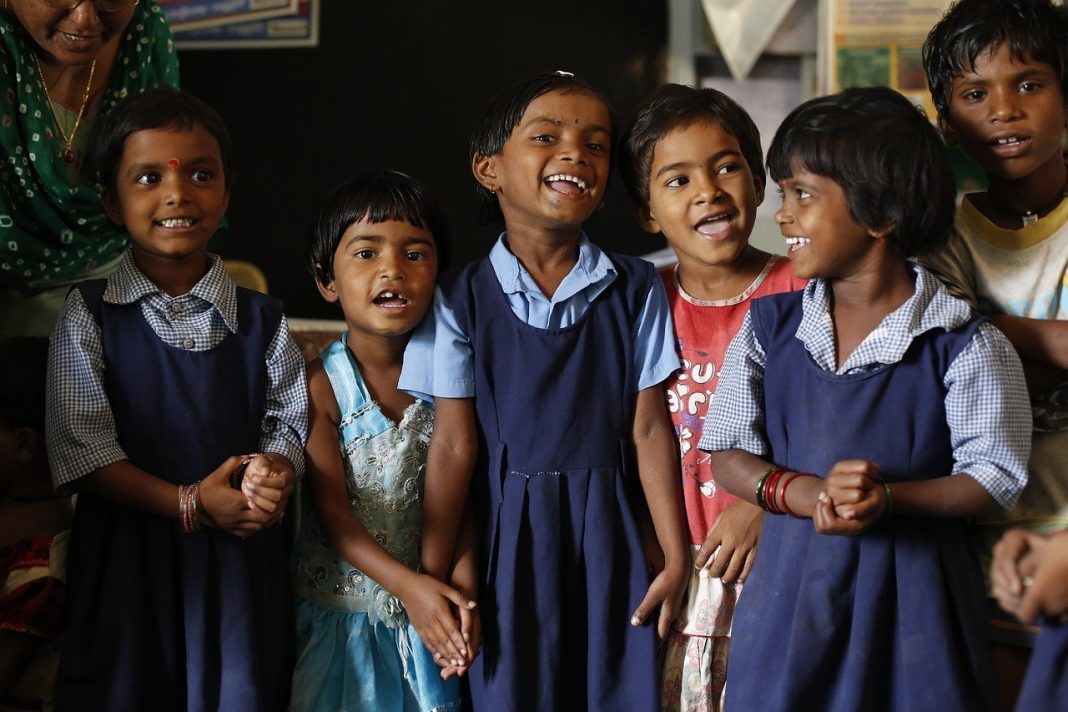
“If we expect kids to be losers, they will be losers; if we expect them to be winners, they will be winners. They rise, or fall, to the level of the expectations of those around them, especially their parents and their teachers.” ~ Jaime Escalante
Labelling is assigning and using words to describe someone. It is assigning names on basis of one’s behaviour, actions, performances, etc. Labelling theory was developed by sociologists in the context of classification of certain behaviours as deviant from socially acceptable norms. Labelling theory coined by sociologist Howard Becker in 1963, talks about what happens to criminals after they have been labelled. According to his theory, behaviour is defined in terms of the labels that society assigns or attaches to them and how they are perceived by others. Later work of labelling theory was applied to the educational field by Rosenthal and Jacobson, Rist, R. C, David Hargreaves and various other researchers. According to Hobbs (1975) labelling is a form of classification, the act of assigning a child to a category or to a particular position in a class system. The labels assigned by teachers influence students, their identities, attitudes, behaviour and achievement in academics.
Weak Students, Dumb, Not Intelligent or Not Capable, Slow Learner, Duffer, Lazy, have you ever heard such labels? Or have you ever used these words for any student whose marks are less? It is generally seen that students are often been labelled on basis of their academic performances by teachers, parents and society. Students scoring good marks are often been labelled as bright and intelligent. Whereas the students who do not perform academically well and scoring less marks are negatively labelled as weak or not intelligent. And some teachers even make derogatory comments “inse toh kabhi kuch ho nhi sakta” (he/she can never do anything), “they can never succeed in life”, “yeh toh nalayak hai” (he/she is not intelligent/ dumb) “. It might be easy to use such negative labels and derogatory remarks for students who do not perform well in class. But do you think it’s easy for students to listen to such words? Does one give a thought as to how it impacts a student? For some, having a negative label can benefit them as it helps one to understand their weaknesses. Another reason is it helps in the development of specialized teaching methods, and assessment approaches thus students can receive specialized help from teachers. But labelling in many cases, perhaps results in a difficult life of self-doubt, stigma and judgment. It hampers students academically, socially and psychologically.
Labelling hinders academic engagement
The students when labelled, tends to lead a sense of helplessness and feel they just cannot do well. As they are labelled as weak or not intelligent the students also start to believe that they are not intelligent or competent enough which hinders their academic engagement. Rosenthal and Jacobson (1968) In their study investigated the Pygmalion effect, they studied how teachers influence the performance of students based on their perceptions of the students. The study proves that labelling students creates a self-fulfilling prophecy and concluded that there is a direct correlation between teacher expectation and student performance. Labeling impacts a teacher’s expectations and her attitude towards students which in turn impacts a student and their academic performance. Thus, students once labelled, continually lives out the label. As teachers negatively label academically low performers and make them feel they are weak, this demotivates them and thus, labelled students do not put efforts to perform better. This in turn, inhibits their learning opportunity and destroys their academic motivation, they don’t feel like studying, and start to perform more poorly. Thus, one can say that labelling is a barrier to the learning of many students, making it difficult for them to improve.
Social and Psychological Implication
Labelling has negative implications not only on student’s academic performance but it also affects them psychologically, and their social life too. The students start to doubt themselves and their abilities which lowers their self-esteem and confidence. The students start to feel inferior and believe that other students in the class who score well are more intelligent and are better than them. Many students socially withdraw or isolate themselves. Some students don’t like going to school, some become timid or introverts whereas some students might get aggressive, bunk their classes, they lose interest in their studies and do not concentrate in class. These labels thus impact student engagement in the classroom.
The teachers treat every student equally however there are some teachers who knowingly or unknowingly are biased in class and give much attention to or favour the students who are academically performing well and give them the opportunities such as participation in class discussions, in extracurricular activities or competitions at school/college. The teachers do so because they have lower expectations from students who do not perform well academically, and think these students cannot do what is required so they are restrained from the opportunities.
It not only hurts these students but also gives them a feeling that they are not capable enough and makes them feel discriminated. Due to this, many students are likely to develop a negative attitude towards the teachers and perhaps towards the school/colleges. Many a times teachers compare them with other students of the class who are academically well performers. They do ability grouping as students who do not perform well are grouped together and the ones who perform well are grouped together, this creates hierarchy in class. In some cases, labelling also impacts students’ interactions amongst themselves, the academically well performer do not interact in a friendly way with low performers, bully them, tease them and also degrade them as they consider themselves superior. This makes students feel socially excluded. All this affects their mental health too. It makes students vulnerable, helpless and depressed. The student’s perception about their own selves gets hampered.
The Role of Teachers
Teachers play a crucial role in imparting education and plays important role in helping students develop socially and psychologically. But due to labelling it is somewhere hindering students’ holistic development. Assigning labels and degrading students won’t make any improvement in their performances rather it demoralises them. Thus, the teachers and even parents instead of labelling students should look out for causes of low performance and work on the same. The teachers should help and facilitate the students to improve academically. The teachers should not think about whether a student can learn and perform well rather should work out the best possible solution that will help students to improve. And also provide them with academic support by designing teaching methods and pedagogies that the school and teachers think is appropriate for the students.
It is also important for the teacher to motivate the students. Motivation makes them belief on oneself. The teachers should show students how much they matter and encourage them to grow to their fullest potential. It’s important for teachers to support students and never give up on them. Teachers are humans, so it is obvious that they are going to be drawn towards certain students but they need to be careful not to treat any student in any special way rather treat every student in the class equally and provide them with opportunities. Teachers should ensure not to compare students as every student is unique in their own ways. It’s important to make sure that students who are academically well help other students in class instead of making fun of them and make sure to not let them feel that they are weak or have a lower potential than them rather make positive connections with them. The teachers should form strong, warm, loving and supportive student-teacher relationships. This allows students to feel safe and more secure in the school/college setting thereby making them improve academically, build confidence and self-esteem, develop a positive self-image and enhance mental well-being.
Iknoor Kaur Kohli is pursuing her Masters in Psychology.








